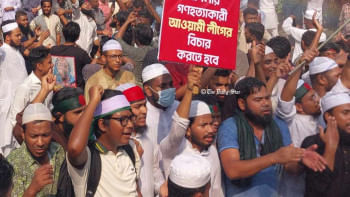HRC ordinance needs reworking
THE National Human Rights Commission Ordinance, 2007 has come up for scrutiny by human rights advocates and civil society members, who have found certain flaws in it which, according to them, may defeat the whole purpose of setting up the commission.
The flaws identified by them include the proposed structure of the selection committee, that will recommend two names for each post of the three-member HRC to be appointed by the president, as being heavily tilted towards bureaucratic representation. We have reasons to believe that such bureaucratic preponderance in the selection committee will influence the composition of the HRC and may well compromise its autonomous working. An imbalance is built into the selection procedure and the composition of the commission itself as the ordinance doesn't have any provision for representation of underprivileged groups or that of human rights bodies and women rights advocates.
One thing is pretty clear that the government could not push the contents of the ordinance through a truly consultative process. Though a letter was issued last year to the human rights organisations with the objective of consulting with them, the ordinance was promulgated without any such process taking place. Neither was there a public debate on the subject that has left the civil society members and human rights advocates out of the crucial preparatory phase of setting up the commission, giving rise to the questions that are being put forward now. The HRC is universally seen and recognised as a watchdog working independently to prevent violation of the fundamental rights of people, which has a much wider connotation than merely fighting against social and political repression, and, as such, bureaucratic control can only obstruct its functioning. When the idea of setting up the HRC in Bangladesh was floated, the general expectation was that it would be a self-contained and truly representative body that will be impervious to any extraneous influence, overt or covert. But the proposed structure of the selection committee has clearly disappointed the human rights activists.
There are other points also which may reduce the efficacy of the HRC. If the under-trial cases, as stipulated in the ordinance, do not come under the purview of the HRC, the areas to be covered by it will be narrowed down considerably. And it will have a much less significant role in helping the judiciary to mete out justice.
The bypassing of the consultative process before promulgating the ordinance has surely been a lapse of a serious nature. However, the government should now feel the pulse of the principal stakeholders, engage them in a consultative process and make the necessary amendments to the ordinance with a view to elevating our HRC up to international standards.

 For all latest news, follow The Daily Star's Google News channel.
For all latest news, follow The Daily Star's Google News channel. 



Comments